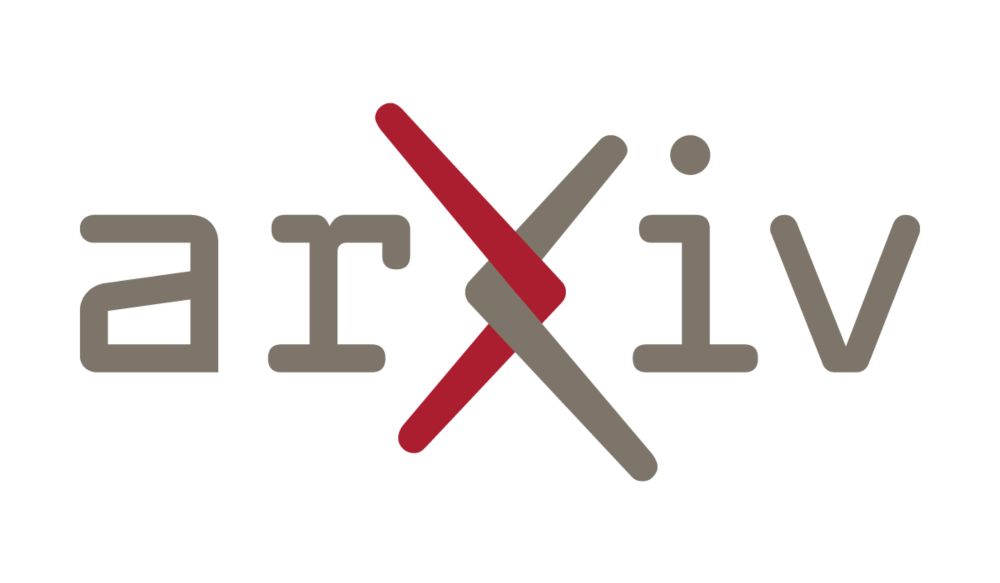Thanks to @dallascard.bsky.social and @davidjurgens.bsky.social for their help on this project! We also received great feedback from members of the Blablablab and CLC lab
14.11.2024 22:36 — 👍 3 🔁 0 💬 1 📌 0

blitt/SPoRC · Datasets at Hugging Face
We’re on a journey to advance and democratize artificial intelligence through open source and open science.
Interested in working with SPoRC? Our data, paper, and code for creating data and doing the analysis are freely available!
data: huggingface.co/datasets/bli...
paper: arxiv.org/abs/2411.07892
processing code: github.com/blitt2018/SP...
analysis code: github.com/blitt2018/SP...
14.11.2024 22:36 — 👍 9 🔁 1 💬 2 📌 0
We're excited for people to use this data to explore the dynamics of long-form conversation, linguistic style matching, diffusion of information, understanding power and prestige within the podcast ecosystem, and more!
14.11.2024 22:36 — 👍 1 🔁 0 💬 1 📌 0

What about the audio aspect of podcasts? We provide speaker turn information, along with audio features that capture this information, such as pitch, allowing future research to consider elements like emotion, humor, or sarcasm
14.11.2024 22:36 — 👍 1 🔁 0 💬 1 📌 0
...Discussion of George Floyd was widespread across categories, with 21% of podcasts saying his name in at least one of their episodes in our time-period. Furthermore, discussion of racial justice peaked quickly around George Floyd but transitioned to a longer-lasting focus on Black Lives Matter
14.11.2024 22:36 — 👍 1 🔁 0 💬 1 📌 0

How does the podcast ecosystem react to major events? As a case study, we consider collective attention in the podcast ecosystem following the murder of George Floyd in 2020...
14.11.2024 22:36 — 👍 1 🔁 0 💬 1 📌 0

A network figure where podcasts are connected by edges if they have hosted the same guest. Color is assigned based on self-ascribed podcast category labels. Layout is determined with the force-directed Yifan-Hu algorithm. Podcasts in the same category appear closer.
How do the creators of podcast content exchange ideas and form communities? We find that the Business, Sports, and News categories form communities through shared guests, whereas other large categories such as Religion and Society do not
14.11.2024 22:36 — 👍 2 🔁 0 💬 1 📌 1

A figure where podcast episodes are projected such that distance indicates topical similarity. Color is assigned based on the self-ascribed podcast category label.
Podcasts have categories, but how similar are podcasts within categories in terms of what they talk about? In our content analysis, we find it's mixed! Some topics belong to distinct categories—but other topics like "racial justice" or "spirituality" cut across many categories!
14.11.2024 22:36 — 👍 2 🔁 0 💬 2 📌 0
SPoRC covers nearly all English episodes during May-June 2020, with transcripts + host/guest inferences for over 1M episodes, and audio features + speaker turns for over 370K episodes. Using this data, we study the content, structure, and responsiveness of the podcast ecosystem
14.11.2024 22:36 — 👍 2 🔁 0 💬 1 📌 0
phd candidate Umich School of Information | with GEO3550, Anti-Eviction Mapping Project, DAIR Institute. tech, race/empire, capital, logistics
For a ruthless criticism of all that exists, towards a Marxism without guarantees, etc.
https://nathan-kim.org
CS PhD @UIUC | Prev. MSc @UMich & BEng @SJTU.
Interested in #NLProc & #AI.
leczhang.com
Economics Associate Prof, CEU Vienna.
Trade, applied IO, organisations. sites.google.com/site/bekesg
Author, "Data Analysis for Business, Economics, and Policy" (Cambridge UP) https://gabors-data-analysis.com/
@arsenalfc fan.
PhD candidate @ University of Michigan School of Information
https://aminaxabdu.github.io/
Deep Learning, NLP, multimodal models and all things neural network. Also, math guy and computer scientist.
Social Justice and Technology Postdoc at Swarthmore College; freshly minted PhD from University of Michigan School of Info. Educating, agitating, organizing in tech-ademia.
PhD student in Human-Centered Computing @GeorgiaTech🐝
🔦Study (mis)use of generative AI, misinformation & low-quality info, health and wellbeing. (she/her)
🔗 jiaweizhou.me
PhD Candidate at the University of Michigan School of Information :: Knowledge/Cultural Production, Science of Science :: he/him/his
https://jamesmzd.github.io/
Writer, podcaster, educator.
Contact: drdario22@gmail.com
Podcast: https://patreon.com/cinematologists
Substack: https://substack.com/@dariollinares
PhD-ing @ Cornell Info Sci!
Uses machine learning to study literary imagination, and vice-versa. Likely to share news about AI & computational social science / Sozialwissenschaft / 社会科学
Information Sciences and English, UIUC. Distant Horizons (Chicago, 2019). tedunderwood.com
NLP and computational social science (CSS) researcher. Assistant Professor in Computer Science at Williams College. AI2 and UMass Amherst alum. she/her. https://kakeith.github.io/
community builder & WEsearcher at the Academic Data Science Alliance
PhD student in Computational Social Science at @itu.dk @nerdsitu.bsky.social | Visiting Scholar at @umich.edu and @ceu-dnds.bsky.social
PhD student at Stanford NLP. Working on Social NLP and CSS. Previously at GaTech, Meta AI, Emory.
📍Palo Alto, CA
🔗 calebziems.com
critical race, queer/trans & AsAm studies, algorithmic justice at UMSI
all about abolition, transformative justice, free palestine. SSBM (link main), anime, and indie art/zine fan. catch me staffing at anime cons!
pan/bi enby 🇹🇼🇮🇩🏳️⚧️
Incoming Asst Prof @UMD Info College, currently postdoc @UChicago. NLP, computational social science, political communication, linguistics. Past: Info PhD @UMich, CS + Lx @Stanford. Interests: cats, Yiddish, talking to my cats in Yiddish.
White House reporter at the Washington Post. Focused on politics, policy and public health. Democracy dies in darkness.
Find me on Signal: username dan_diamond.01
forbes' 7.4 billion under 7.4 billion.
Entertaining & educational conversations about science, tech, + more. Hosted by Ira Flatow and Flora Lichtman. From WNYCStudios.






